#bc the government simply doesn't want to do anything to prevent it
Text
Cw/forest fires
#the air smells like charcoal and it's only going to get worse#bc the government simply doesn't want to do anything to prevent it#i can't wait to see what kind of luxury homes are going to be built there /src#i hate it here#my parents went on the roof to watch it#they sed it looks really scary#i can imagine#i saw last year's#i simply can't handle it emotional rn#the planet is dying#and that's just a fact#it's not going to change#i can only think of the poor animals getting burned alive rn#backed against a wall or something#i have been really close to big fires and i know how that feels#how the few feet i had space to move away just weren't enough#and the worst thing is#that they are just animals they don't understand it isn't their fault#they didn't knew that they had to evacuate#and now they just burn#sure a few got away#but the fires have been burning for some days now#the weather isn't helping either#dry and windy#very windy#i mean we all know that the fire didn't accidentally started at the local dumb
2 notes
·
View notes
Text
Okay I'm about 60% into book 3 now, Holden has been taken from the Ring Station by Martian marines and went through initial interrogation, so now I have more blather about Novel-Holden v Show-Holden.
In the novel, we see Holden start to believe he really is special, pushed to that conclusion by the (ultimately erroneous) belief that the woman who did the things Clarissa actually did was Julie Mao - that Proto-Julie set off a cascade of events designed to get Holden specifically through the Ring, just like Proto-Miller seemed to he aiming for. He sees that Ring Station, and he head for it without prompting to look for answers, because he believes the protomolecule wanted him here for a reason, and going there would mean both fulfilling his purpose and finding out what that purpose is.
Then Miller reveals he was 'chosen' simply because the real Miller felt a certain way about him - trusted him, it seems to boil down to - and the protomolecule then reached out to Holden bc it absorbed Miller's consciousness, and Miller saw Holden as the guy to get things done, and...that's it. But Holden continues to think more must he at play because why then did Proto-Julie go to such great lengths as part of this conspiracy to bring Holden here? She didn't know him after all.
When Holden explains everything, starting from first seeing Miller a year before, it all hits him - he isn't special at all. He doesn't actually care about that; what he cares about is the fact he bought into it at all. He feels incredibly foolish. Humiliated by his own hubris. I imagine that will get even stronger when he realizes the actual woman behind it all was Julies very much alive and protomolecule-free sister. Holden doesn't necessarily desire being special, but that he jumped to that conclusion at all is humiliating to him.
Then we have Show-Holden. We see Show-Monica suggesting more than once that he's special, but Holden continues to refute it. Even when she says 'I think you are, I think you know you are, I think you like it' he calls her out - says he thinks she's just trying to get a rise out of him. This Holden, much like the written one, would feel foolish if he believed he was special and wasn't. It's possible that part of why he insists he isn't is the belief it would be foolish to think it regardless of evidence presented: the hubris he doesn't want to fall prey to, and which Novel-Holden does.
He also never has the factor of a belief that Proto-Julie is involved. How would that affect Show-Holden though if he did? Would he ask again what makes him special in the way he once asks Proto-Miller the same?
A part of me thinks he wouldn't, because of where the urge to even ask that seems to come from. Show-Holden has had been made very aware of the potentially far reaching consequences of his actions. His sense of responsibility prevents him from doing otherwise, even when he disagrees about the specifics of what he is or isn't at fault for (e.g. he sees his role in the earth-mars conflict earlier in the show as different than other accuse him of, because he sees something that the viewers, on the outside looking in, do: that this was a conflict that had been building over decades, maybe centuries, to the point that what would set it off would be less an instigating element and more an excuse. We see how the political machinations of those like Avasarala reveal this: she's aware that it's an excuse those two militaries and governments are looking for, and her efforts to prevent war are all focused on removing any potential excuses, which she recognizes as a stop-gap solution more than anything else).
Holden's awareness of that is made explicit in the scene on the Station. He refuses to complete that circuit until Proto-Miller tells him what the consequences will be: specifically, what harm it could or will do to others. Seeing a more 'human' Miller who talks about Julie and how it was to die is what enables him to go forward with it: he's shown a version of a man he trusts to *care* about those consequences. He's been reassured that this isn't a malevolent entity; perhaps even one of compassion, even if that compassion originates from the memory of Miller's mind rather than the protomolecule itself. A sense of urgeny does the rest.
So what about that urge to ask? I think it comes less from a place of wanting to know for its own sake, and for his concept of himself, and more from wanting to know so far as what that could mean for humanity in general. He asks 'why me' because if he knows why, he can use that information when he weighs his choices; a calculation. It's not about him - it's about the protomolecule's motivations, by whatever definition of 'motivation' might apply. The content of those motivations then in turn inform him of whether doing what it says will have dire consequences or if those dire consequences are what will come to pass if he refuses. And, 'knowingly' or not, it becomes a matter not so much of the real Miller's trust in Holden, but about Holden's trust in Miller.
That trust comes into play in Season 4, when he helps Proto-Miller out by fixing the planet's machinery, to put it one way. Proto-Miller already told him how to stop the Ring Station from destroying all those inside, and the rest of humanity along with it. It's not like when he trusted the info that got them in the Ring safely - that was about hinging their lives on Proto-Miller's need for a 'ride'. Negotiates for their safety with it. But how to save humanity from destruction? The protomolecule would have no interest in that: as he says, it's like paving over an anthill. Humans mean nothing to that force. Malevolence or benevolence are a non-factor. But Proto-Miller acted with benevolence by giving him the information he needed to understand how they could all survive, how to show they weren't a threat. Holden doesn't have to trust the protomolecule's non-motivations...he only has to trust the rememnants of Miller he came to see while inside the station as the apparition spoke about his moments with Proto-Julie on Eros; his feelings about death, which meant he *had* feelings. Compassion, fear, regret.
It puts the question of 'why me' in the backseat. Holden doesn't need to know anymore. He had the real question behind 'why me' answered: got the information he was really concerned with (or at least he believed he did). This is demonstrated when the question expands from 'why me' to 'why us': Holden wonders and asks multiple times if humanity as a whole has been chosen for some unknown purpose, if there's something about them that made the protomolecule open up the universe to them or if their humanity is simply incidental, along with their existence. If they're just tools, then what kind of tool? Does the protomolecule, and possibly the builders who made it, need something from them, and if so, what is it?
The thrust of the question hasn't changed. Holden wants to know if humanity's actions - their choices, their behavior, even their mere presence - will have dire consequences, or if *not* continuing to use the Rings will. This is a Holden who will ask 'why me' only up until the time to act comes: why or how he ended up in the position to do something stops mattering - all that matters is the fact of him being in that position and then actually doing it. The reasons aren't important unless they affect the outcome.
I'm not trying to suggest that Show-Holden is some perfectly altuistic person, selfless to the point caring nothing for what happens to him and only what happenes to others, but he does prioritize it. He alters his behavior not only to prevent death and institutionalized harm but to be kinder to people he loves. When he's made to realize in Season 6 that his apparent disregard for his own safety hurts the people who love him, he promises to do better, then does. He priotizes the people he loves not because they have some greater purpose but because they're important to *him*. He cares about his home and his family and sees preserving those things as important for their own sake, and for himself. His needs, including emotional, do come into play. As they should.
He still fucks up, still gets things wrong, still has all the flaws he has, but that's good, because it makes his character feel like a real person and not just a symbol - some idealized version of a hero that either turns the character two dimensional or elevates them beyond realistic expectations. The show and novels both examine what it means to be human; the things we value, the ways we behave, how our emotions manifest in actions - our flaws, our limits, our strengths, our potential. Having your main hero escape all that somehow would run counter to the story's messaging, whatever its format or version.
As for Novel-Holden's motives behind that question, I'd say that's yet to he revealed, but I'll probably write another long rambling post about it when it is
3 notes
·
View notes
Text
Long ass post about the Eternal family not being a copy-paste from ATLA (aka I like the memes but my god can you please stop)
Because some people truly think that Vaylin is off-brand Azula, Arcann is Zuko and so on.
It's. Called. A. Trope. (I mean how often do we come across abusive manipulative fathers in media? Mothers who couldn't much to change anything? Children, desperately looking for their parent's approval no matter what?)
Of course, you have to consider the fact that the writing of ATLA is simply better than of KotFE/ET, so this might have been one of the reasons why people say that.
Spoilers for Avatar: The Last Airbender, Knights of the Fallen Empire and Knights of the Eternal Throne expansions!
Okay, so here's my unprofessional, maybe biased, not super deep take.
(not going to mention that all of them are members of royal, ruling family, kinda obvious)
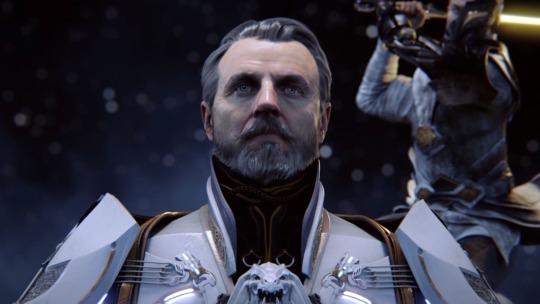
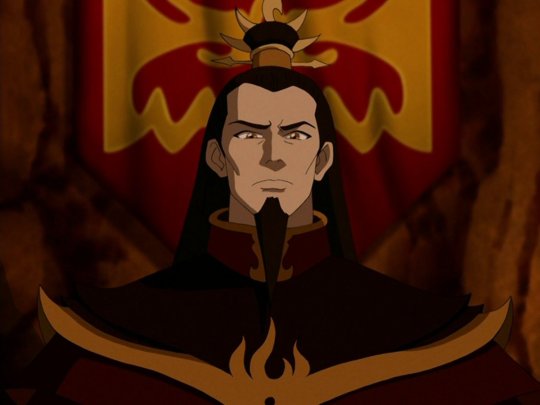
What roles do they play in their stories? Well, both Valkorion and Ozai are main antagonists, but their presence throughout the story is very different. Ozai is rarely shown in first two seasons, we don't even see his face until season 3. He doesn't have a direct connection to the protagonist, they only meet at the very end of the show, and Ozai's role is to pose a threat to the world, while Aang's is to save it. Valkorion, on the other hand, is constantly on the screen, interacting with the main character, challenging their viewpoint and influencing them directly. His end goal is similar to Ozai's (destroy everything and be the only ruler of the his nation), but with one major difference - he's trapped in Outlander's mind, so to achieve his goal Valkorion attempts to take control of the main character. Their interactions play important role in the story, and we spend a lot of time with Valkorion.
In addition to that, their relationship with children are also not exactly the same. It seems like Azula is Ozai's favorite and Zuko is a failure in his eyes until he meets his expectations, and the same goes with Vaylin, Arcann and Valkorion, right? Well, partially. Indeed, Valkorion and Ozai's treat their sons in similar ways (are disappointed in them until they meet their expectation by doing something that goes against their morals), but when it comes to Vaylin and Azula, it's not that easy. See, Valkorion claims that Vaylin was always his favorite creation (even though we know it's actually his empire), and he certainly seems to take pride in her potential in the Force. But her power is the very reason he's afraid of his own daughter, and in this fear Valkorion literally locks Vaylin away and allows to put her through physical and mental torture just to make sure she won't become a threat, won't overpower him. Maybe he thought of her better than of Arcann, but she wasn't his favored child for sure. I don't want to say that Azula hasn't experienced abuse from Ozai, but for the most part he clearly favored her over Zuko. He has never shown fear of Azula's power and abilities (or at least I haven't noticed), quite the opposite - allowed her to do a lot, as long as she brings results.
I could also mention their slightly different characterization (mostly that we get more characterization of Valkorion, get to learn his motivations, views, philosophy and all that, also he's portrayed as more nuanced, even if he not really is) and role in their respective governments (ozai is one of many Fire Lords and arguably not the greatest, while Valkorion is a god to citizens of Zakuul, their only Immortal Emperor), but those are details, and I think you get the point.
What's similar: role of the main antagonist, manipulative and abusive father, goal of destruction of everything that isn't their nation/empire, relationship with disgraced son.
What's different: presence in the overall narrative, relationship with the main character, relationship with daughter, role in their societies.
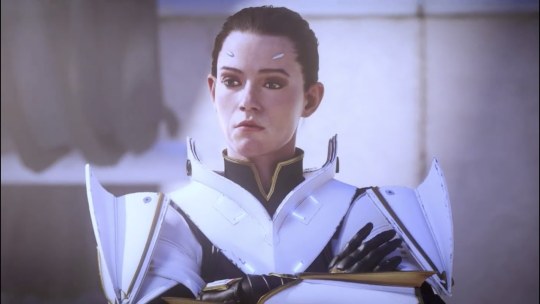
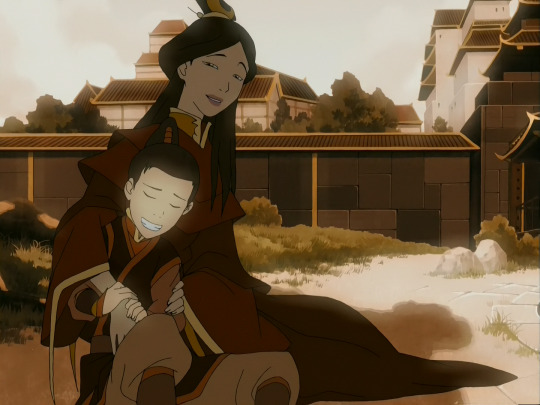
Senya and Ursa are even less similar. Yes, they both are mothers who love their children, but have to leave them, but these are probably the only things they have in common. Just as with Ozai and Valkorion's presence throughout the story, Ursa is only shown in flashbacks (for obvious reasons), and Senya is one of major characters in KotFE and (a bit less major) in KotET. Ursa leaves because she has to kill Azulon in order to save Zuko, and later isn't present in the story (I'm aware that her fate is told in comics, but we aren't talking about it). Senya leaves because when she tries to take children with her, they refuse, and she understands that she can't force them to, nor she can help them to break free from Valkorion's manipulations. For a long time she's absent from Arcann ad Vaylin's lives, but at the time of game events she attempts to save her children and stop the madness and destruction they've caused, and it isn't a small part of the story.
I also want to add that their relationship with Ozai and Valkorion are also different, but can't say much about Ursa. I heard that she didn't choose this marriage and suffered emotional (and maybe physical???) abuse from Ozai. I can say with confidence, though, that Senya genuinely loved Valkorion, and strangely enough, he seems to at very least respect her. But, of course, this wasn't the best marriage either.
Plus, we see more of Senya's relationship with Vaylin than Arcann or Thexan, but with Ursa we see her more with Zuko than Azula. Just a detail to remember.
(also Senya is simply a better character but that besides the point, moving on. in this house we stand Senya)
What's similar: role of loving and caring mother, abandoning their family at some point.
What's different: presence in the overall narrative, relationship with husband, characterization in general.
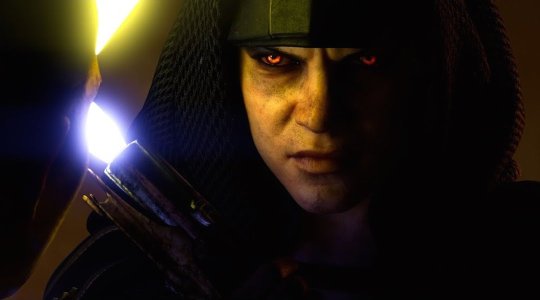
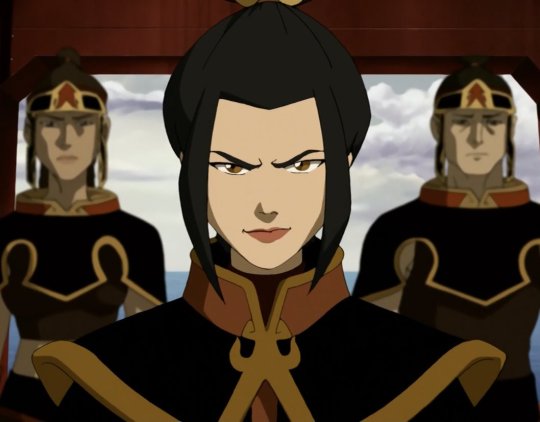
Boy, where do I even begin. Vaylin and Azula are similar in that they are both extremely powerful (one is firebending prodigy, the other is potentially stronger than Valkorion), both are cruel "craaaaazy" (i hate that cliché), both are younger sisters, have serious mother issues (seemingly more so than father issues), both go through betrayal of people they could always rely on, which eventually leads to their downfall. But when I took a look at their personal arcs, it became clear that they aren't the same (unfortunately, Vaylin's arc is very rushed and underdeveloped, but we'll have to go with what we have and my personal view, sorry).
There's a really good video about writing corruption and madness, and I'm going to base my thoughts on it. To summarise it: a good corruption arc should have 4 components:
- the character has a specific goal (or a goal and subgoals);
- in pursuit of said goal they become the cause of a significant event that brings serious consequences;
- as the result of these consequences, character abandons their morals, ideals or a code in pursuit of goal;
- character either will not achieve their goal or will succeed, but it won't be enough to satisfy them.
And then the author brings Azula's arc as one of the best examples of compelling story of corruption (so basically, she represents it perfectly). In short, Azula's main goals are perfection and control, and subgoals help achieve the main ones. In pursuit of these goals, Azula causes Mai and Ty Lee to betray her (by pushing them too far to do something they wouldn't do), which then causes her to become paranoid, which makes her to attempt controlling everything and everyone around her, *breathes* which makes her lose control over herself and ....
Now, I thought if Vaylin's arc could fit into a corruption one, and next part will be based a lot on my assumptions and personal view of her character (plus rushed writing doesn't help), but I think yes (or at least mostly). The difference is in goals, ideals and details.
While the story strongly makes us think that Vaylin's goal is freedom (or control over her life and everything around her) or power and destruction, I think it's actually self-determination (which was said by Tenebrae in 6.2) and feeling safe. Let me explain (and here I thought this would be a short comparison). Sure, when Valkorion caged Vaylin on Nathema, he took choices and control over her life from his daughter. But let's not forget whom Vaylin blames for this (even more than Valkorion): her own mother, and I think this details tell us that the most important thing that Vaylin lost on Nathema is feeling safe. Then, after Arcann brought her home, I assume Vaylin still didn't feel safe enough under Valkorion's rule, still too afraid that he'd simply send her back to that hellish place.
It's when Valkorion is struck down Vaylin finally has a feeling of personal safety, even if she isn't the one on the throne. Why? Because back on Nathema there were two people who haven't turned on her - Arcann and Thexan (yes, this is also a huge assumption, bc the game states that only Thexan visited her, but it doesn't make much sense).
I've always noticed (and I'm not alone in this) that her behavior in Fallen Empire is different from the way she acted in Eternal Throne. Most likely bc of rushed writing, but I see a character driven reason here. In first of these expansions, Vaylin is the second person in power on Zakuul, and with Arcann being in charge, person she can trust more than any other living being, she feels safe - she can test her power, and now Valkorion won't prevent it, she can do pretty much everything she wishes, and the most Arcann will do about this is mildly complain (without blaming her). Really would be nice if we got to see any normal hobbies of Vaylin (like wasn't there something about books or art?), but I digress. She might have some questions about Arcann's tactics, but they get along just fine. The important thing to note is Vaylin not seeking to hunt the Outlander personally, to rule or conquer the rest of the galaxy, or trying to achieve absolute freedom or power. She's kinda there.
This, however, changes when Arcann doesn't allow Vaylin to kill Senya. Their relationship was getting somewhat worse towards the end of KotFE, but this is a turning event Vaylin caused by attempting to strike her mother. By saving the person Vaylin blames for all the trauma from sending her to Nathema, Arcann threatened her feeling of safety. And now Vaylin starts to believing that to achieve safety she now needs to kill people who hurt her (that's why she's so determined to find Senya and Arcann), take the throne and hunt down Outlander (she was manipulated by SCORPIO to these subgoals).
(The following is the weakest, I'll admit, but I hope I can at least express what I see). So, in trying to achieve goals she didn't want before Vaylin loses in self-determination, being either driven by overwhelming anger or manipulated by others (SCORPIO or Commander on Odessen), desperately trying to accomplish anything, or even goes against her morals (like by erasing GEMINI's free will protocols, when earlier she agreed that freedom to choose is important; or breaking the deal on Odessen). All of these result in her downfall.
But even this isn't the end. The key difference between arcs of Azula Vaylin lies in it's resolution, or that Vaylin have a chance to overcome corruption in the main narrative (and Azula doesn't. again, not including comics here, sorry). After death, Vaylin is again controlled by Valkorion in Outlander's mind. First time physically (she can't resist it), second time mentally. This is where Vaylin has to choose - kill brother who betrayed her and Commander who killed her, or go against Valkorion, person responsible for almost all of her pain and trauma. She has t choose by herself, and I think it's a good start.
Now, before 6.2 we all thought Vaylin was dead for good, but that story update hinted at possibility of her coming back to life. What I like to think is that now that she dealt with people responsible for her trauma (helped defeat Valkorion and actually for once listened to Senya), Vaylin can now have a different life, finding herself with support of someone she doesn't hold a grudge against and who treats her well (Satele, I mean).
I'm so sorry for going into details, but I needed this long explanation to present the point (and I suck at explanations). As said before, this is my version of her arc, and most likely wrong interpretation, but even with personal freedom of choice, Vaylin character differs from Azula a lot.
Need I mention that Vaylin relationship with Arcann and Valkorion are drastically different from those between Azula, Zuko and Ozai?
(Also a little detail - with royal family of Fire Nation, Azula is the golden child, while with Tiralls it's actually Thexan, not Vaylin).
What's similar: role of extremely powerful, emotionally damaged daughter with little to no regard towards others, close people betraying them, resulting in their downfall.
What's different: characterization, role in the narrative, relationship with father and brother.
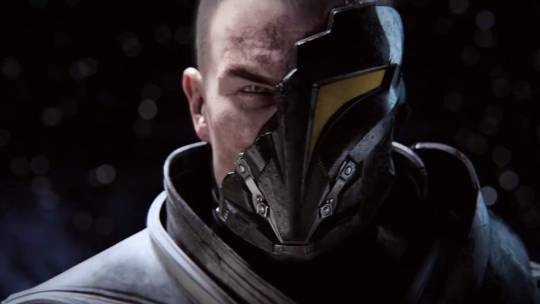
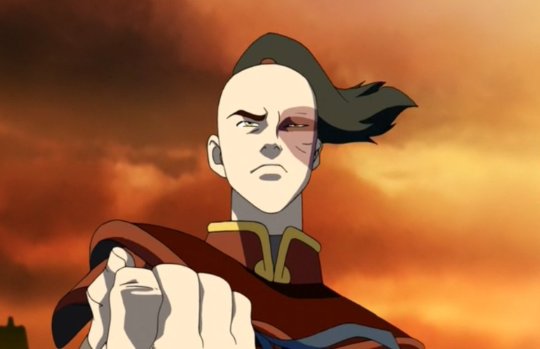
Arcann and Zuko is the most difficult part, but I still believe that calling Arcann just a cheap copy of Zuko is incorrect.
So, they fall into role of less successful son, always getting disapproval from father, being in shadow of more talented sibling, both obsessed with capturing the main character but ending up helping them end the war after going through a redemption arc with help of caring family member. Even both have scars on left side of face. Yeah, seems similar. I still think they are different characters.
Let's start with their relationships with family. In Valkorion section I said that his attitude towards Arcann is similar to that of Ozai towards Zuko, so not going to spend too much time here. However, there's slight difference - Zuko didn't kill his father even he had a perfect opportunity (bc it wasn't his goal), Arcann did (bc it was one of his goals), which says something about their characterizations.
Zuko and Ursa were shown to have a good mother-son relationship, and it played a role in Zuko's character. With Arcann and Senya, we don't really know (not much was shown in expansions). We know Arcann didn't hate his mother, but possibly didn't have warm memories of her either. The reason is most likely, like Senya said, her children wanted nothing to do with her (which is a bit untrue about Vaylin, but okay) and leaned more towards Valkorion. We need to remember that on Zakuul Valkorion isn't just one of many great leaders, he's the greatest, and seen as a god by most citizens, so safe to assume the same would apply to his children as well.
Zuko and Azula's siblingship (i'm out of words) is a bit similar to Arcann and Vaylin's in way of brother knowing that his sister isn't good, but still caring about them (even if not showing). At least it's what I saw. What's different is how Azula treats Zuko, compared to how Vaylin treats Arcann. I think Azula showed compassion or concern for Zuko maybe twice, but I'm not entirely convinced that it was 100% sincere. Vaylin, on the other hand, seems to trust and care about Arcann (with bits of sass and questioning his life choices), and switching to complete opposite after him saving Senya. Also, I don't she ever called Arcann a failure in their father's eyes.
Now I want to say that their roles in stories aren't the same either. Sure, both are introduced to us as antagonists, but in reality, Zuko was never a true antagonist (we get to learn this somewhere mid-season 1), when Arcann remains the main antagonist for whole of KotFE. Zuko didn't start a war and didn't participate in conquest of other nations too much, his main goal was to capture the Avatar so to restore his honor (and deserve his father's forgiveness). Honestly, I think it's safe to say the Zuko is one of two main protagonists of ATLA. Why does Arcann want to capture the Outlander? Solely because his father's spirit still lives inside this person's mind, and the best solution to keep Valkorion away from the galaxy is not letting the Outlander free (hence the carbonite freezing). And Arcann doesn't want or need Valkorion's forgiveness when he attempts to kill him (or kills him, depending on your choice. anyway, his action directly leads to Valkorion's "death"). And right after that he becomes a ruler of Zakuul and begins the conquest of Republic, Sith Empire and everything he can reach (the reasoning behind this is still unclear to me though; maybe because he was raised with ruling Zakuul in mind and he didn't anything else, idk). Point is, he's responsible for war and main's character imprisonment, which makes him the main antagonist of KotFE. They have it the opposite ways - Zuko starts as disgraced prince, supported by a little group of people, and in the end he's recognized and appreciated by his nation, and Arcann starts as respected by his empire, later becoming less and less loved, until some groups start rebelling his rule, and in the end he doesn't get to rule Zakuul again.
This leads me to their morals. See, Zuko didn't have the worst morals in Fire Nation, even more, he expressed care for loyals soldiers of his nation before getting punished by Ozai. During first season (and about a half of second one) his views on other nations are what he was taught before. However, these views are challenged by travelling in Earth Kingdom, witnessing people suffering from war Fire Nation started and hating its people (you already know all of this), and with this he comes through final stage of redemption when he's back home. Unfortunately, Arcann doesn't go through this, and he's shown to be more ruthless.
Alright, when it comes to their redemption arcs, well let's say they are different (both in quality and the way they go through it), I'm just a bit tired of long explanations at this point. Zuko's arc is one of the best ever put on television, and Arcann's... well, it definitely has potential, but is criminally underdeveloped (there are other people who will explain it better than I ever could).
What's similar: role of disgraced son, living in shadow of their sibling, serious injuries on the left side of face (though with different meanings), obsession with capturing the main character, having a redemption arc.
What's different: role in the narrative, role in their society, characterization, relationship with sister and mother, different end goals (before redemption), paths to redemption.
#ah. ofc it didn't show in the tag bc of the youtube link. ofc. gonna be down bc of this)#hey look at me rambling about something only maybe 2 people take seriously#also i noticed that parental characters are better in swtor and children characters are better in atla. do what you want with this#it's 3:30 am i should be sleeping but here instead writing this#(forgive if i have some spelling mistakes. brain shutting down but i won't be at peace if i don't post it right now)#okay so if you have thoughts on this... you really don't have to waste time on this#i really only wrote this because i was annoyed by some peeps on reddit claiming vaylin is off-brand with a straight face#(and then posted this on tumblr bc i don't want to suffer those people on reddit)#what am i doing with my time#(not gonna tag atla bc it's not really about it)#swtor#arcann#vaylin#valkorion#senya tirall#kotfe#kotet#pauletta's babbling#pls send help#(or oc aks to give me some free serotonin but no obligations ofc)
51 notes
·
View notes